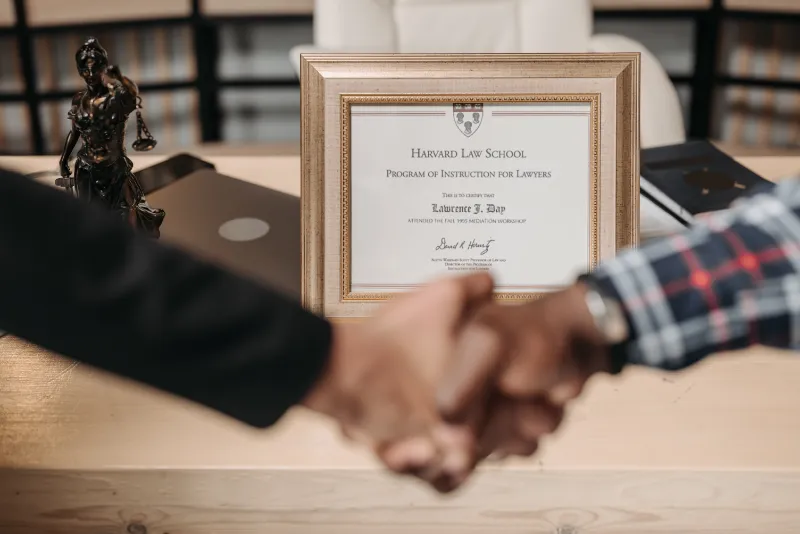Negotiations are an essential element of our personal and professional lives. They appear in various settings as we negotiate life’s ups and downs. Whether you’re in Thailand haggling for a fantastic price, an Australian business lawyer or working with company solicitors to smooth out a contract, or even in bustling London resolving issues with coworkers, the ability to negotiate is a vital treasure in your collection. Weaving negotiations into our daily lives is beneficial and necessary for us to handle them successfully.
Of course, it’s not an easy skill to develop. If it were, we’d all be earning six-figure salaries. Negotiations require you to balance differing interests and perspectives, which can lead to conflicts if not managed properly. To ensure you can navigate these complexities deftly, let’s explore six strategies for avoiding disputes and keeping things positive and productive.
What is the Art of Negotiation
Negotiation is a delicate dance in which persons or groups collaborate to obtain an agreement, each seeking to affect the outcome in their favor. It’s a fundamental ability that pervades our personal and professional lives, playing an essential role in everything from getting a job offer to resolving problems and forming business alliances.
Negotiation is more than just arguing over prices; it is a comprehensive process centered on finding common ground, even when competing interests and opinions exist. It requires effective communication, astute reasoning, and the capacity to create connections and trust to thrive. Successful negotiators are like competent painters, capable of changing their technique to different conditions and personalities.

Understanding the art of negotiation entails recognizing its fundamental parts, which include clear communication, cautious preparation, and emotional intelligence development. Negotiation is essential because it enables us to negotiate difficult circumstances, make informed decisions, and cultivate meaningful connections. Alternative to adopting a “winner-takes-all” approach, it focuses on the art of discovering inventive solutions that benefit all parties involved.
How to Learn the Art of Negotiation?
Learning to negotiate is a fascinating path that leads to personal and professional development. Improving your bargaining abilities may be transformative, whether you want to boost your profession or improve your everyday encounters. To begin your journey toward mastering this critical skill, you must first embrace a genuine desire to learn and grow. It all starts with your willingness to learn and progress.
Learning the bargaining skill is a vital step ahead whether you want to flourish in your business or improve your personal life. To begin, let’s go through the first actions you’ll need to take:
Self-Assessment
Begin by considering your present bargaining skills. Consider your talents and shortcomings. Are you an attentive listener? Can you maintain your calm under duress? The first stage in the process is to identify your areas for improvement.
Finding Valuable Learning Materials
Look for valuable learning materials. The Beginning of your learning journey may be as simple as reading books, taking online classes, and attending workshops and seminars. These beneficial sources provide you with a wealth of materials that help you to improve your skills and knowledge. So, take advantage of these opportunities and watch your knowledge expand. So, look for materials that fit your learning style and interests.
Practice, Practice, Practice
Like any talent, negotiation improves with practice. Mock negotiations, role-play scenarios, or real-life circumstances where you can apply what you’ve learned are all excellent places to start. Every big or small negotiation is an opportunity to hone your abilities.
Seeking Mentorship and input
Seek Mentorship or input from experienced negotiators. Learning from someone who has firsthand experience may give essential insights and direction. Constructive feedback assists you in identifying areas for improvement and promotes your development as a negotiator.
Remember that developing the art of negotiating is a continual process that requires patience and effort. Accept each negotiation as an opportunity to learn, adapt, and develop; you’ll be a master negotiator in no time.
6 Key Principles of Successful Negotiation
1. Know your objectives before you enter the room
You must first define your objectives before engaging in a negotiation. What do you want to gain from this deal? What are the unassailable? And where can you be more adaptable?
By setting specific goals and boundaries, you give yourself a roadmap to follow during the negotiation process. This will help you stay focused while minimizing the chances of conflicts arising due to misunderstandings or ambiguous expectations.
2. Listen with empathy and active attention
When engaged in discussion, consciously try to hear and understand the other party’s perspective truly. Avoid interrupting or immediately countering their points. Instead, summarize what they’ve said to ensure you’re on the same page. Ask open-ended questions and seek clarification when needed. By listening with empathy and active attention, you show respect for the other party, which can relieve tension and foster cooperation.

3. Maintain an environment of respect
Negotiations can become heated, but it’s essential to maintain a positive and respectful tone. Avoid using aggressive language, personal attacks, or derogatory remarks. Instead, use a respectful tone and focus on addressing the issues and finding mutually beneficial solutions. This will help you build trust and rapport.
4. Find common ground every step of the way
No matter how different your positions may be, there’s almost always some element of common ground that can be identified. Look for shared interests, values, or goals you can agree on. By highlighting these commonalities, you create a foundation for collaboration and compromise. By highlighting shared objectives, you can shift the focus away from areas of disagreement and towards creative solutions that may benefit all parties.
5. Be flexible
Negotiations do not have to be a zero-sum game. Viewing them as an opportunity to attain your aims while ensuring that the opposing side benefits equitably is preferable. To make this happen, you must be open to new ideas and willing to change your attitude. Flexibility demonstrates your commitment to finding common ground and can help avoid confrontations from developing.
6. Engage a mediator to keep things moving forward
Despite your best efforts, negotiations sometimes fall. When this happens, it’s time to think about hiring a mediator. A good mediator helps ease conversation, discover common ground, and provide solutions that benefit everyone concerned. This new perspective can alleviate tensions and lead to a more pleasant ending.
Negotiations are an inevitable aspect of life, and disagreements can arise along the route. Fortunately, solutions are available to help you effectively manage these disputes and lead them toward mutually positive outcomes. Remember that good negotiations aren’t about one party “winning” but finding solutions that please all parties. By applying previously indicated tactics, you may attain such results while establishing a reputation as a knowledgeable and fair negotiator.
Case Studies
Sometimes, looking at real-life examples of people who have perfected the art of bargaining is the greatest way to comprehend it properly. These stories not only inspire but also provide useful insights into what it takes to win in negotiations.
Nelson Mandela’s incredible journey negotiating for peace and healing in post-apartheid South Africa is one such example. His ability to overcome profound differences and gain the trust of his opponents was nothing short of remarkable. Mandela’s persistent confidence in the power of forgiveness and his drive to find common ground is a timeless lesson in negotiation.
Numerous corporate titans have demonstrated remarkable bargaining abilities. Consider Steve Jobs’ critical discussions with music companies to develop iTunes, revolutionizing the music industry. Consider Warren Buffett, who is well-known for his astute acquisition methods.
These real-life examples demonstrate that negotiating is an art form that can bring about dramatic change and generate win-win solutions. They remind us that bargaining is a universally beneficial ability that can be refined and employed in various situations.
Conclusion
Negotiation is an important skill in many areas of life, from business to workplace concerns. Mastering it is a worthwhile endeavor. There are strategies for avoiding confrontations and creating fruitful interactions. Finding common ground and creative ideas for all parties is essential for effective negotiation. Its influence may be seen in real-life instances like Nelson Mandela and Steve Jobs.


